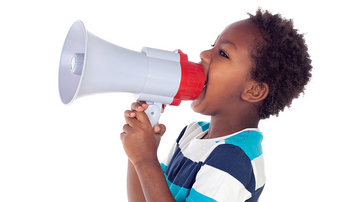Self-image and wellbeing play an essential role in a child's capacity to learn. Children who feel good about themselves, who are confident in their abilities, and who feel a sense of belonging in their environment, are more likely to be engaged and successful learners. In contrast, children who feel isolated, stigmatized, or undervalued are more likely to struggle academically and emotionally.
The Centre for Literacy in Primary Education (CLPE) recognizes the critical role that representation plays in a child's self-image and wellbeing. As their "Reflecting Realities Report" notes, "If in their formative years, children do not see their realities reflected in the world around them or only see problematic representations mirrored back at them, the impact can be tremendously damaging."

Representation is not just about seeing oneself reflected in literature or media. It is about seeing oneself reflected in a positive and affirming way. When children encounter representations that reinforce negative stereotypes or that stigmatize their experiences, it can have a significant impact on their sense of self-worth and wellbeing. In contrast, when children encounter representations that celebrate their experiences and identities, it can help to build a positive self-image and a sense of pride in who they are.
CLPE notes that "To redress imbalances in representation is not an act of charity but an act of necessity that benefits and enriches all of our realities." By ensuring that all children see themselves reflected positively in the literature they encounter, we can help to create a more inclusive and diverse learning environment that benefits all children.
The impact of representation on a child's self-image and wellbeing extends beyond the classroom. It can impact their social interactions, their mental health, and their sense of belonging in society. By prioritizing representation and ensuring that all children see themselves reflected positively in the world around them, we can help to build a more compassionate and inclusive society for all.

In conclusion, self-image and wellbeing are critical factors in a child's capacity to learn. When children feel good about themselves, they are more likely to be engaged and successful learners. Representation plays a crucial role in a child's self-image and wellbeing. As the CLPE notes, "To redress imbalances in representation is not an act of charity but an act of necessity that benefits and enriches all of our realities." By prioritizing representation and ensuring that all children see themselves reflected positively in the literature and media they encounter, we can help to build a more inclusive and diverse society that benefits us all.





